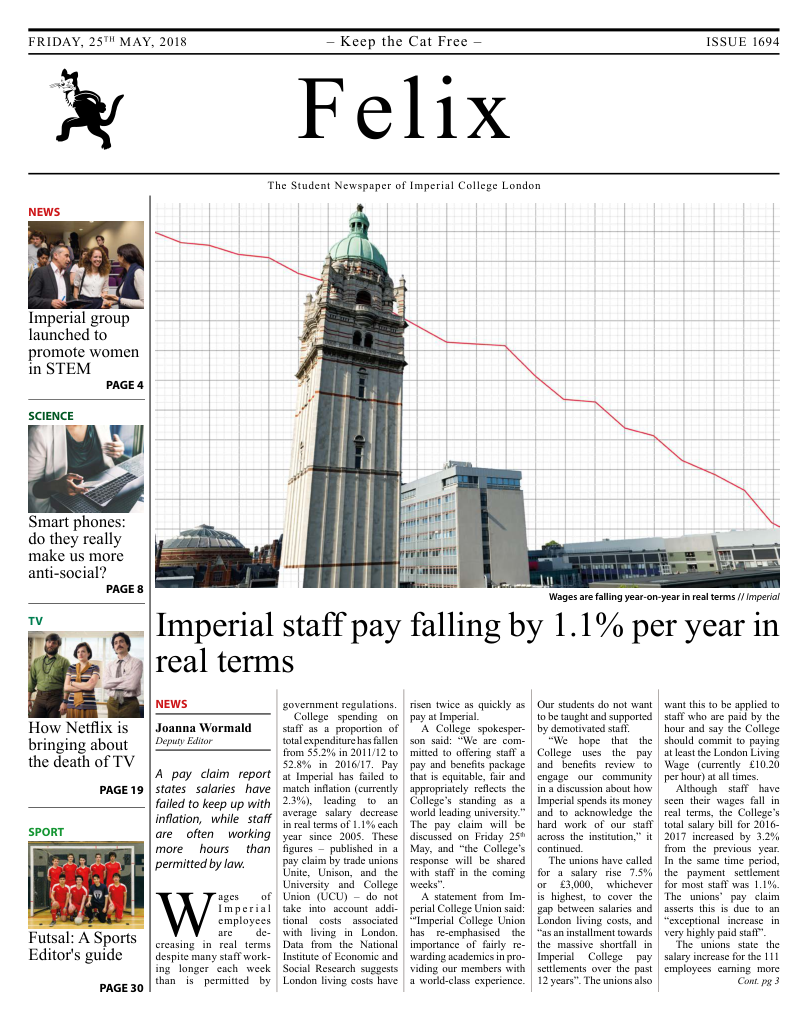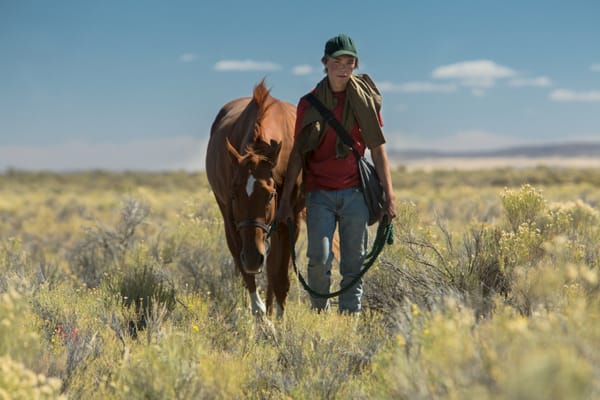On Chesil Beach: A strained drama that loses it in the last act
In Dominic Cooke’s directorial debut, he sticks closely to Ian McEwan’s original book, but it’s clear he’s more comfortable with the theatre, with many aspects of the film resembling a stage play.

On Chesil Beach has perhaps the longest sex scene I’ve ever seen in my history of cinema-going. We encounter newly-weds Florence (Saoirse Ronan) and Edward (Billy Howle) right at the beginning of Dominic Cooke’s film, and – shortly after sitting through the post-wedding dinner from hotel hell – they start to get it on. Or, at least they try. Things don’t reach a climax – both physically and emotionally – until about eighty minutes later, by which time the film, and the audience, has lost any sense of excitement.
Interspersed between this fumbling and tugging and stalling is the story of two lives, slowly but surely coming together; through flashbacks, we follow Florence and Edward as they make their way towards each other from radically different backgrounds. Florence is the upper-class daughter of an academic (played with haughty excellence by Emily Watson, who manages to deliver lines like “I heard her on the phone to Iris Murdoch” as if it were the most natural thing in the world) and a factory-owner; she’s just graduated from the Royal College of Music, wants to make it big with her string quintet, and – for the standards of the time and milieu – is a bit of a radical, attending CND meetings in her spare time.
It is at one of these meetings that she meets Edward, a bright man from less well-off backgrounds, who has just finished at UCL (“But that’s London. For sons of tradesmen,” Florence’s mother cries). His mother, played by the brilliant Anne-Marie Duff, is an artistic, eccentric woman, whose life is upended when she’s hit by a moving train door, leaving her ‘brain-damaged’. It’s a moment of shocking violence that has repercussions throughout the film, although Cooke doesn’t go far enough in exploring the impact it’s had on Edward.
The two meet, fall in love, get married, and then… an inability for Florence to have sex drives a wedge between them, leading to a shouting match on the shingles of Chesil Beach. The reasons behind this refusal, which Edward terms frigidity, are hinted at throughout the film, although in the process it seems to insist the behaviour necessitates an explanation, and that this explanation must be traumatic.
“The screenplay creates a three-part structure out of a film that can only sustain a single act”
The film sticks closely to the original book, with Ian McEwan even serving as the film’s screenwriter. It’s understandable, but a pity, since it creates a three-part structure out of a film that realistically can only sustain a single act. While the film has a natural cut-off point, leaving the couple alone and isolated on the beachfront, it instead follows them up through the decades, as Edward and Florence lose their youthful joie de vivre, and gain heavy ageing prosthetics. The result is a film which falls apart in the last half-hour, undermining the careful sense of time and place created at the beginning of the film. It also serves to dampen down the emotional poignancy generated in the beach scenes, instead replacing it with something much more close-ended and hackneyed.
The cast give it their all, however. Ronan is, as usual, excellent in the film, perfectly capturing the mid-century British accent of the upper crust, all clipped vowels and restraint. Her Florence is hesitant and unsure of herself, particularly in the excruciating sex scene, which reportedly took a week to film, but Ronan is able to turn on a dime, switching from emotional vulnerability to hard steel. It’s difficult, however, when comparing it to her last performance, in Greta Gerwig’s majestic Lady Bird, to not miss the impressive naturalism of the film’s screenplay; On Chesil Beach, in comparison, seems stilted and disjointed. Howle manages to hold his own against Ronan, although he on occasion oversells the blustery, impulsive nature of his character.
Cooke’s main experience is in directing for the stage, and it shows here: the action is frequently stilted, with numerous section appearing more like a televised play than an actual film. While cinematographer Sean Bobbitt, who is best known for his work with Steve McQueen, manages to capture the majestic beauty of the English landscape, things all too often veer away from naturalism and into a more formalist style of film-making.
It seems apropos that, from a book all about frustrated desires and containment, we get a film that is itself frustrating and contained. On Chesil Beach seems to waste its brilliant cast on a drama that is lacking in emotional power, and weighted down by a turgid ending; while there are moments where it manages to hit the mark, they’re few and far between in the over-long film.
ON CHESIL BEACH
3 Stars
Dir: Dominic Cooke. Script: Ian McEwan. Starring: Saoirse Ronan, Billy Howle, Emily Watson, Anne-Marie Duff. 110 minutes










